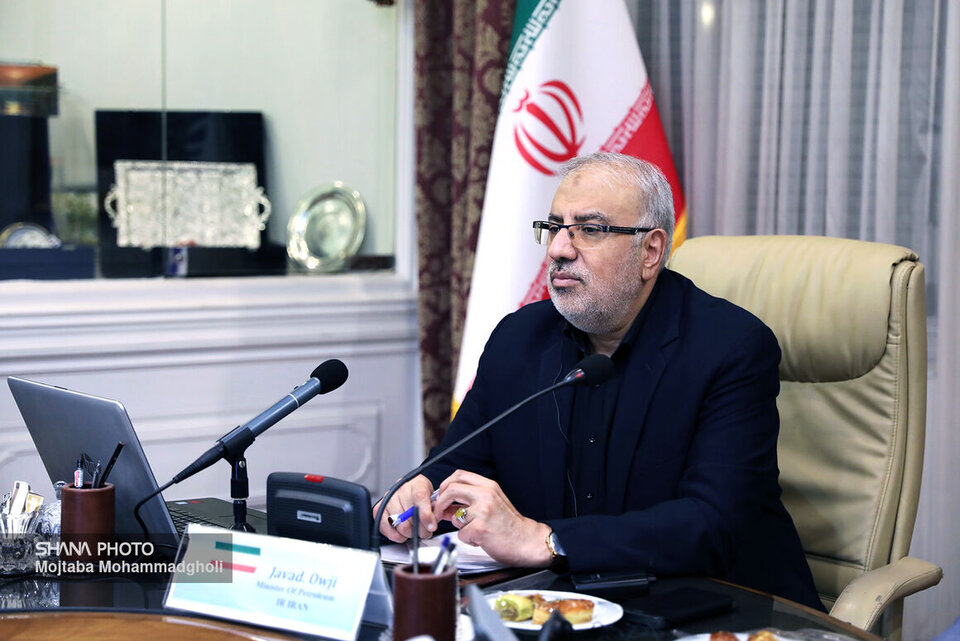Talking to SHANA, the minister added, “We are trying to institutionalize cooperation with non-OPEC producers within the framework of OPEC+ alliance.”
Owji, who spoke after the 187th Meeting of OPEC Conference and the 36th OPEC and Non-OPEC Ministerial Meeting (ONOMM), said today’s ONOMM was held after a days-long delay via videoconference, during which the participants clearly stressed the need to preserve the oil market stability and support OPEC+ collective decisions.
The OPEC+ members underlined that the coalition keeps a close watch on global oil markets and the balance between supply and demand, said the minister, adding the alliance also voiced its readiness to make quick decisions and take the necessary measures to stabilize the oil market and cope with its situations.
Shifting to the postponement of OPEC and OPEC+ ministerial meetings caused by differences between their member states, Owji said it is not something new as the they have had such differences at some junctures, adding all that matters is that OPEC+ producers reach an agreement and a consensus serving the member states’ interests.
The oil market is experiencing a challenging era, he stated and noted additional supplies by some producers outside of the OPEC+ alliance associated with uncertainties surrounding global economy, the outlook for international markets, speculators’ activities in the oil market, and consequences of mentioned developments are sending out alarm signals.
The agreement and decisions made by OPEC+ and during ministerial meetings have served the OPEC and non-OPEC member states’ common interests, said the minister, pointing out the successful move should continue in the future as it is vital for ensuring the market stability and serving producers’ interests.
The released reports and analyses show considerable uncertainties about global supply and demand, said Owji, adding each could have special impacts on future developments.
Short sellers’ increased activities in the market have fueled concerns and the outlook for the international oil market cannot be anticipated with certainty, the minister stated, continuing, “I cannot agree to any of these speculations, either.”
He said the United States and other big consumers’ worries about the global oil market and energy security have been caused by U.S. policies and acts aimed at putting OPEC+ and its producers under pressure – political pressure on some big oil and gas producers by imposing brutal and unilateral sanctions and escalating geopolitical tensions through making political intervention and supporting war in the Middle East region.
Owji is convinced that the agreement and decisions made by OPEC+ are one of the significant factors in eliminating fluctuations in the oil market, improving global economic conditions, encouraging investment in the oil industry, and guaranteeing energy security.
“We consider the OPEC+ agreement and cooperation between large oil producers as the only option to provide the world with short- and long-term energy security,” he emphasized.
“As I said before, all observers and experts of the oil market acknowledge the constructive achievements of the OPEC+ agreement for the market stability and energy security,” reiterated the minister, underlining that Iran fully supports the agreement and decisions made by OPEC+ as the agreement reached between the alliance’s members and issued in OPEC and non-OPEC producers’ Declaration of Cooperation brings benefits for global oil market, producers, consumers, and economy.”
The topics of the 187th Meeting of OPEC Conference, he continued, revolved around administrative, financial, and managerial issues that are discussed by member states’ oil and energy ministers biennially.


Your Comment